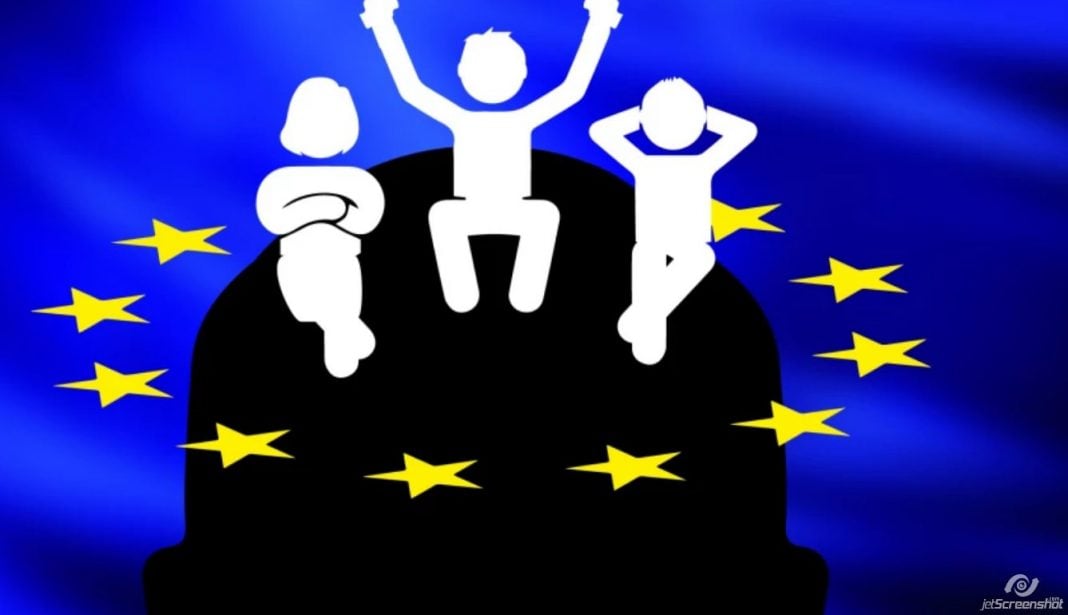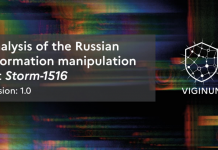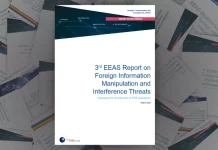The Detector Media team analyzed more than 35 thousand posts to determine how Russian propaganda manipulates the topics of Ukrainian refugees and IDPs who were forced to leave their homes as a result of Russian aggression.
Українською текст читайте тут.
In the context of the full-scale Russian invasion, Detector Media systematically researches Russian disinformation in the Ukrainian and Russian social media segments and noticed an increase in the number of references and manipulations on topics related to Ukrainian refugees and internally displaced persons who were forced to leave their cities and villages to escape the war. We are referring to both people who went abroad in search of asylum and those who moved to the regions of Ukraine where there are no hostilities. Russian propaganda systematically spreads fakes and manipulations about Ukrainian refugees, portraying them as ungrateful scoundrels, triggering fear in them that soon all EU countries will abandon them. Detector Media analyzed the Ukrainian and Russian social media segments to find out in what context pro-Russian users most often mentioned Ukrainian refugees and internally displaced persons and what messages and manipulations about them appeared most frequently.
Read also Media Detector’s research on gender and LGBT disinformation used by Russia.
The results of the study were obtained by Olha Bilousenko, Oleksiy Pivtorak, Ira Riaboshtan, Victoriya Namestnik, Orest Slyvenko, and Ksenia Iliuk.
Why Russians are weaponizing refugees
Weaponization is a phenomenon when information is used as a weapon and an attack on the information sovereignty of another country. In our case, this is the information about the life of refugees from Ukraine. According to a study by the European Policy Centre, disinformation narratives are constantly evolving and quickly adapting to the rapidly changing news cycle. Therefore, important global events, including the so-called migration crises, become a catalyst for the spread of disinformation; provide a platform for inciting hatred and spreading fears; change the tone and content of the discourse. As an example of the ability of disinformation to adapt to the news and shape political discourse, European Policy Centre analysts cite recent events in Afghanistan and Belarus. In particular, a few days after the Taliban seized power in Afghanistan, there were disinformation reports that hundreds of thousands of Afghans were heading to Europe. The report said that only Afghan men fled the country, but their lives were not in danger. Such misinformation spread the fear of an imminent “invasion” of Afghans in society. Disinformation messages were also spread amid reports about the situation with migrants on the borders of Latvia, Lithuania, and Poland. The media spread false articles about uprisings and violent fights among migrants in reception centers and claimed that there were disguised terrorists among the new arrivals. Such stories were spread to reduce the trust of Europeans in state institutions and reduce the level of support for refugees.
European Policy Centre analysts warned about the possibility of spreading disinformation campaigns about refugees from Ukraine at the beginning of the full-scale invasion with Russia in March this year. They explained that disinformation narratives regularly portray migration as a threat to people’s health, wealth, and identity. Depending on the circumstances and the news, refugees are portrayed as an invading force and a threat to cultural traditions and identity or as criminals unable to respect social and legal norms. Disinformation narratives also often describe refugees as a threat to the security and economy of the host countries. By linking migration to broader issues affecting society, disinformation actors use high-profile events to manipulate public perceptions, taking advantage of social divisions between refugees and residents of European countries.
In this study, Detector Media focused on the relationship between disinformation concerning Ukrainian refugees and the Russian propaganda machine on social media.
Research Methodology
Detector Media analyzed over 35 thousand posts in the Ukrainian and Russian segments of Facebook, YouTube, Telegram, and Twitter, which were provided by LetsData and Semantrum. By Ukrainian and Russian segments we mean posts published by profiles, pages, groups, and channels that are located in Ukraine and Russia, respectively, or that have indicated their location as Ukraine or Russia.
Monitoring period: February 28 — September 28, 2022.
Read more about the methodology of data acquisition and processing here.
Who we call pro-Russian social media users
Pro-Russian social media users are those who spread messages of Russian propaganda and disinformation. In particular, those who support the war in Ukraine, call it a “special operation”, justify it, accuse the governments of the “West” of military actions, etc. For example, Twitter user Tatiana (@9kbKUMsDdUYfULv), has more than three thousand followers. Her social media profile is filled with posts accusing Ukraine of war crimes and calling the Russian army valiant. In her posts, she calls Ukrainian refugees nationalists who, she says, promote Russophobia even abroad. However, Tatiana is dissatisfied not only with Ukrainians but also with law enforcement officers from European countries who support and protect the rallies of Ukrainian “Russophobes”. It is difficult to determine Tatiana’s country of origin from her page. On Twitter, she reposts both Russian and Ukrainian pro-Russian tweets, while there is almost no original content on her page. Another case is a pro-Russian user Comanche Leader (@komancej), who has 753 followers. This user calls Ukrainians “khokhols”. In November this year, Comanche Leader expressed disappointment with the defeats of the Russian army in Ukraine. In addition, in his posts, the user accuses Ukrainian refugees of laziness, of leaving to other countries for the sake of profit. This criticism extends to those refugees who ended up in Russia. Allegedly, they are to take advantage of Russians without thanking them for their help.
Features of the discourse on Ukrainian refugees and internally displaced persons in each of the social media
Twitter posts were targeted at refugees, while there were almost no posts about IDPs. This is yet another indication that Twitter is less popular in Ukraine than other social media platforms. There was a predominant pro-Russian discourse on refugees on Twitter. It was more politicized than in other social media. In particular, one of the most popular messages spread at the beginning of Russia’s full-scale invasion of Ukraine was about the alleged absence of refugees after the occupation of Crimea in 2014. These statements tried to prove the legitimacy of the illegal referendum in Crimea and emphasize the difference between the occupation of Ukrainian territories in 2014 and the current full-scale invasion. Among other things, a large share of pro-Russian messages about Ukrainian refugees targeted the United States and European countries, primarily Moldova, Poland, Germany, and Great Britain. Regarding the United States and the UK, Russian propaganda continues to exploit the image of “curators who dragged Ukraine into war and refused to help (including by taking in refugees)”. As for Moldova, Ukrainian refugees were presented as a threat; for Poland, the range of messages was wider, from the unwillingness to accept refugees and threats, to profits and the use of refugees as a “slave labor force”. Russia, on the other hand, was mainly presented as the country that received “the largest number of refugees from Ukraine”. Among other things, this message was used later to justify Russia in that it is not an aggressor, because “refugees choose the country to seek asylum”. At the same time, the propagandists, of course, failed to mention that a significant part of Ukrainians who ended up in Russia had been forcibly deported or went there because the Russians left them no other way out of the occupied and war-torn territories.
On Facebook, most of the publications concerned assistance to refugees with paperwork, finding housing and employment. In posts expressing attitudes towards Ukrainian refugees and IDPs, the writers used personal insults to attack their opponents. Most notably, they used xenophobic slogans about “disease-ridden” or “uncultured” refugees from Ukraine.
On Telegram, most posts related to the topic of refugees appeared in March-May 2022. There was a significant decrease in the number of such posts later. At the beginning of the full-scale invasion, the messages mostly concerned the rules set up by different states for Ukrainian refugees, the requirements for traveling abroad, etc. Additionally, many posts discussed the fact that Russia allegedly creates the most comfortable conditions for receiving refugees from Ukraine. It was also emphasized that more Ukrainian refugees go to Russia than to European countries or the United States, although this is far from the truth because most Ukrainian refugees are forcibly deported to Russia rather than go there of their own free will. Later, Telegram posts began to promote the message that Europe is tired of Ukrainian refugees. They claim that they have grown weary of the Ukrainians’ patriotism, nationalist slogans, and insolent behavior. Instead, Russians abroad were portrayed as “innocent victims of Ukrainian nationalism/Nazism” and “cruelty”. Most of the posts on Telegram focused on Ukrainian refugees in Poland, Germany, the UK, and the Baltic states.
On YouTube, most of the messages, in a manner similar to Twitter, concerned Ukrainian refugees, while there was almost no mention of internally displaced persons. In particular, toxic arguments were found in the Russian segment of the social network. For example, there were messages that “refugees are destroying Europe” or about the “cancellation of cash payments for Ukrainian refugees”, similar to those found on Telegram. In general, Ukrainian refugees were portrayed as lazy, unemployed people living off social benefits. Many messages referred to Russia and Belarus taking in refugees and protecting them from “armed aggression”. Instead, pro-Russian users predicted certain doom for European countries, because “the collapse of Europe is happening because of refugees draining its wealth ”. In addition, there were claims about so-called Russian refugees who are “victims of political repression” both in Russia and abroad since Europe has refused to accept them.
Key propaganda talking points identified during the study
“Ukrainian refugees are arrogant and unwilling to work, so the EU countries will soon stop helping them”
In the course of the study, there were posts from pro-Russian users targeting both Ukrainians and Russians that Ukrainian refugees would soon be expelled from European countries because they allegedly organize pogroms, behave arrogantly, are unwilling to work, etc. According to such posts, refugees from Ukraine were called lazy, reliant on government assistance, and alleged to have left Ukraine to make money. They claim that Europeans are not stupid and quickly understood what refugees from Ukraine were really like, and therefore will not tolerate them anymore, but will quickly ask them to leave their countries. Such posts often included examples where refugees were allegedly evicted from hotels because of the mess they created; evicted from houses and apartments because refugees were damaging property. “Another case of ingratitude from Ukrainian refugees. A young man helped a family from Ukraine to move to Poland. And they wrecked their new home,” the post read. Alternatively, pro-Russian users claimed that “refugees broke the TV, failed to pick up garbage, and spoke arrogantly to the owner of the house”. However, this case has not been confirmed, and neither have dozens of other posts in which Ukrainian refugees are accused of untidiness, arrogance, etc. In other words, this information is just gossip.
Ukrainian refugees were also accused of being the reason why hotels in Bulgaria and other countries no longer want to accommodate tourists from Ukraine. “In Bulgarian hotels, the attitude towards Ukrainians has deteriorated after Ukrainian refugees lived there. They leave filthy rooms and many complaints behind them. In one of the rooms, they wrote “Glory to Ukraine” in feces,” read the post. This story, by the way, is fake. It has already been refuted by Lithuanian fact-checkers. It turned out that the photo of the alleged fecal inscription on the wall in the hotel was fabricated.
Using social media, propagandists implied that Ukrainian refugees would be expelled en masse from the EU for such “offenses”. According to them, some countries even hold rallies calling for the expulsion of Ukrainians. “While Zelenskyy says that the EU countries need to expel Russians, they gradually stop accepting Ukrainian refugees. They will begin sending them home soon,” the message read. They also wrote, “The Poles are rallying against Ukrainian refugees”; “It’s fascinating seeing refugees that act arrogantly literally everywhere”; “As soon as the war ends, kick them out of there, no one is going to keep them on welfare”.
However, pro-Russian social media users called Ukrainian refugees not only impudent, lazy, or arrogant but also too rich. “This is hypocrisy, comrades. An Austrian resident is outraged by rich refugees from Ukraine. The man told and showed refugees from Ukraine coming to Europe and living in luxury,” the post reads. They also tried to reinforce the idea that Ukrainian refugees in Europe live in luxury with numerous posts about women who dress expensively, pay for cosmetic procedures, drive cars, etc. “Refugees are so refugees. In other words, war is war, but lip procedures proceed as scheduled,” pro-Russian users claimed in one of the posts. However, during wartime, various Ukrainians are forced to go abroad: rich, middle class, and the underprivileged. In this case, people go to EU countries not because of their social status, but to protect themselves and their families.
That is, since the beginning of the full-scale invasion of Ukraine, Russian propaganda has been trying to discredit refugees who were forced to leave Ukraine to save their lives. Propagandists regularly spread fakes about them; call refugees reliant on government assistance; claim that they went abroad not for safety, but for profit; argue that residents of the countries that have accepted Ukrainian refugees are dissatisfied with their behavior, etc. Propagandists need this to instill the idea that Ukrainians are bad people who do not appreciate the help provided to them by the residents of other countries; that they take advantage of the kindness of the residents of other countries. Thus, propaganda also aims to discredit the countries that support Ukraine in the war with Russia. They claim these countries will soon refuse to support Ukraine thanks to the bad refugees, so Ukraine will have to solve its problems on its own.
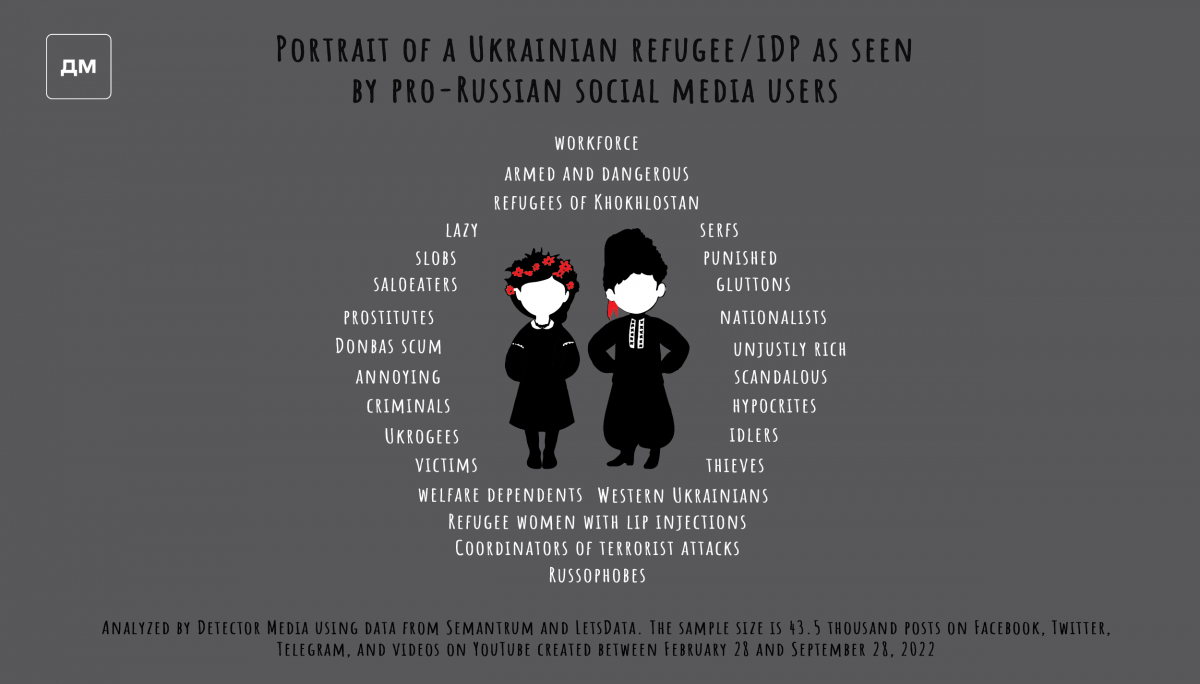
“Europe exploits refugees from Ukraine”
In their posts, pro-Russian social media users blamed not only “ungrateful and arrogant Ukrainians”, but also the leadership of the EU countries, which allegedly seeks to profit from Ukrainians and boost their economy using their labor. “Polish landlords are beginning to force Ukrainian serfs to work for the benefit of their new homeland,” one of the posts read. Another post claimed that “Ukrainians are being confronted with the truth and made to understand that they are being dragged to Europe not for their beautiful eyes or out of pity, but solely as a labor force. The Germans also drove Soviet people to work in Germany”. Pro-Russian users also claimed that, for example, Germans would not want to let Ukrainian refugees go, “so that their children could integrate, stay there, and thus improve their terrible demographic situation”. Sometimes there were messages about the so-called “brain drain”. They claimed that many intelligent and educated people leave Ukraine and stay abroad. Accordingly, it is advantageous for the EU countries to encourage them to live there when the war is over.
The United Kingdom, according to pro-Russian social media users, is betraying the people of Ukraine by forcing refugees to become “cheap labor to clean toilets.” “Keep your military equipment, let Zelenskyy negotiate,” the post read. They argue that by providing military assistance to Ukraine, the UK prolongs the war and turns Ukrainians into refugees who must work for the British “for pennies”.
Thus, claiming that it is profitable for the EU countries to have refugees from Ukraine and use them as cheap labor, propagandists want to instill the idea that the war in Ukraine is beneficial for the EU countries and so they will allegedly do everything possible to ensure that it lasts as long as possible. “Europe and the US need an endless war on the territory of Ukraine. Refugees as cheap labor. Ukraine is no longer a competitor to anyone economically. What a country has been ruined! Nationalism has never built anything anywhere in the world! It only destroyed states!” the post reads.
Calling the support provided by the partner countries to Ukraine to fight Russia a way to prolong the war, propagandists downplay it and, particularly, shift the responsibility for the hostilities from Russia itself to other countries. However, the war in Ukraine was initiated by Russia, and it is Russia that does not intend to end it, destroying Ukrainian cities and villages every day. Instead, the EU states and the United States provide Ukraine with weapons not for “the war to last as long as possible and for the EU to have refugees”, but for Ukraine to defeat the aggressor as soon as possible and reclaim the occupied territories.
“Refugees from Ukraine are destroying Europe”
While some posts by pro-Russian users stated that refugees from Ukraine can improve the European economy (even as cheap labor), others, on the contrary, argued that refugees pose a danger to the social and economic stability of the EU. “When will the zombified Europeans realize for whose sake they suffer a decline in living standards? More migrants pretending to be refugees. And Zelenskyy will suffer a terrible fate, he seems to be insane,” one of the posts said. Some posts predicted that, supposedly, “Ukrainian refugees will tear Europe apart”. Some users predicted a “collapse of Europe” because many refugees from Ukraine, according to them, turned out to be criminals. “These are the same criminals that received weapons from Zelenskyy. They will be happy to cross the border at least somewhere. They should hope that Europe won’t have to complain about this to Zelenskyy when they start causing a ruckus in Europe later,” the post stated. Alternatively, they wrote that Europe is at an end, because refugees, whom “Zelenskyy gave weapons, were not even searched when crossing the border.” In fact, in the first days after the full-scale invasion, weapons were distributed to fighters of the Territorial Defense Force, which is part of the Ukrainian army; due to military service requirements, Territorial Defense fighters cannot leave Ukraine, let alone take weapons with them.
Pro-Russian social media users claim that Ukrainian refugees are not only armed thieves who rob people in Poland, but also carriers of infectious diseases. “Estonian officials are concerned that Ukrainian refugees have brought infectious diseases to the country and may start engaging in prostitution,” the post read. The statement that Ukrainians brought diseases with them to Estonia was also spread by Russian propaganda media. In particular, EurasiaDaily is a media outlet that regularly promotes Russian propaganda narratives. However, this was denied by the Estonian Department of Health. That is, propagandists are once again trying to promote the idea that Ukrainian refugees are sex workers who came to EU countries to make money. There were also posts claiming that Ukrainian women split up happy families in Europe. Earlier, Detector Media published a study of Russian gender-related disinformation, which explained the reasons and the essence of Russian disinformation spread about Ukrainian women who were forced to flee the country.
Russian propaganda employs all these types of messages in an attempt to discredit Ukrainians and create the impression that they can only bring harm to the EU countries by robbing local residents, infecting them with diseases, and worse — destroying the local economy, because they are entitled to government benefits. In this way, propagandists are also trying to undermine relations between Ukraine and friendly states that support it in the fight against Russia. They claim that it makes no sense to support Ukraine and Ukrainians because it harms the partner countries and their citizens.
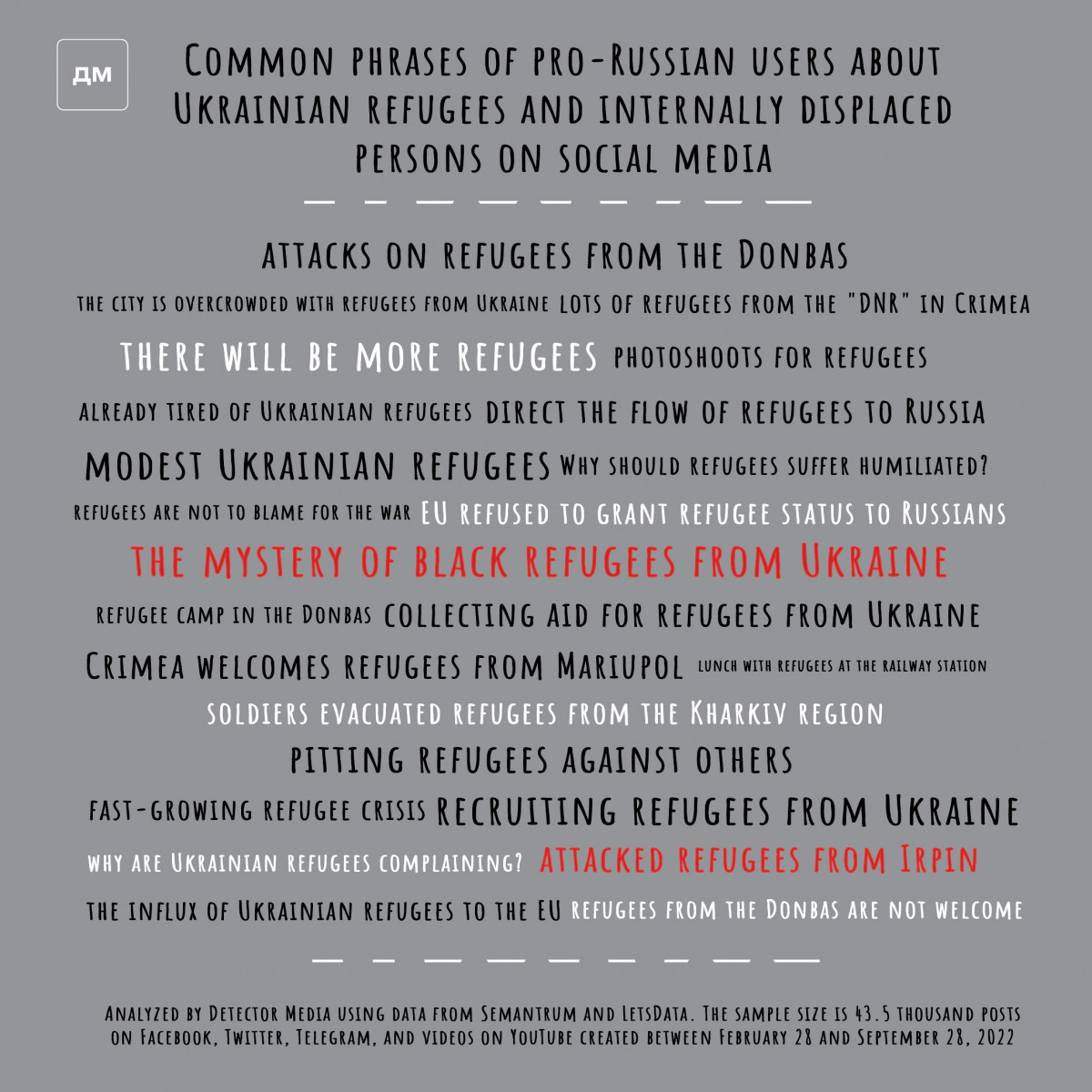
“Ukrainian refugees have privileges”
Another notion exploited on social media by pro-Russian users. In their posts, they claim that refugees from Ukraine who got to EU countries live there in better conditions than refugees from other countries. They allege that Ukrainian refugees have privileges because they are white. “We do not blame Ukrainian refugees, but look at the poor conditions in which Azerbaijani forcibly displaced persons lived for twenty years,” one of the posts reads. “There is some light racism on American TV channels NBC and CBS: Ukraine is not like Iraq or Afghanistan, but a civilized country and Ukrainian refugees are also of the best kind,” another similar post stated.
The fact that Ukrainian refugees are supposedly better than others does not represent a new aspect of Russian propaganda. It is spread to accuse the EU and the US of racism and favoritism of Ukrainians, as well as to bolster the anticolonial narrative that Russia exploits in the Global South. In this way, Russians construct a picture in which Ukrainian refugees are allegedly privileged: they have higher benefits than refugees from other countries; better housing, etc. However, refugees from Ukraine abroad, just like refugees from other countries, also have to live in special housing; have to accept low-skilled jobs, etc. It is also important to understand that most EU countries were not ready for the first waves of mass migration several years ago. In particular, to receive refugees from Syria. Therefore, they had to develop a mechanism for receiving refugees and helping them on the fly. Because of this, for example, refugees from Syria could have problems with paperwork or finding temporary housing. Instead, at the time when Ukrainians began to arrive in the EU countries en masse because of the war, the procedure for assisting refugees had already been greatly improved.
“Refugees from Ukraine are better off in Russia”
Many posts analyzed in the course of the study dealt with Ukrainian refugees who ended up in Russia. Some of them claimed that most refugees from Ukraine went to Russia and they “ have a very good life there”, “receive assistance”, “they can buy housing”, etc. “And you know that after the coup and the beginning of the war, most refugees moved to Russia. About 1.2 million,” the post reads. In fact, many Ukrainian “refugees” ended up in Russia by no choice of their own. Russia forcibly moved thousands of people to its territory as part of the so-called “evacuation” effort. For example, people from the occupied territories of the Kherson and Zaporizhia regions. According to the UN, on February 24, Russia deported more than 2.5 million people to its territory.
However, Russia presents such cases as voluntary border crossings, claiming that “Russian troops provided civilians with humanitarian corridors, which were mercilessly shelled by the Azov troops”. Another post claimed that Ukraine was killing Ukrainians who were trying to leave for Russia. For example: “That is why there are so few refugees in Russia, they simply do not reach the borders”. As well as, “Ukraine asks the Red Cross to allow it to shoot refugees on their way to Rostov-on-Don”.
There were many posts about how Ukrainian refugees live better in Russia than in Europe. They say that the authorities there help Ukrainians build a new life: buy housing, enroll children in schools and kindergartens, and assist them in finding jobs. However, there were also posts in which refugees in Russia were reproached. For example: “Half of the population of Russia is forced to leave and settle in other places, from scratch. And no one gives them anything except mortgages at insane interest rates. They must provide housing to everyone then, not only to refugees, as it was during the USSR”.
Also, in posts made by pro-Russian users, there are assertions that everyone lives well in Russia; the authors of such messages point to Crimea as proof. They claim that Crimea has returned home, and if Russia had stolen Crimea, as Ukraine says, refugees would have fled there as well. “Why are there refugees in Europe from where America has intervened, but not from Crimea, where Russia has?” one of the messages says. However, it is not true that in 2014, after the annexation of Crimea by Russia, no IDPs left the peninsula. For example, only as of June 2016, 22,353 people left the Autonomous Republic of Crimea and the city of Sevastopol as IDPs.
Russian propaganda uses messages like these to redeem Russia: to show that it cares about Ukrainian refugees who were forced to flee the war, unlike Europe, which exploits their cheap labor, etc. Russia also tries to create the impression that Ukrainian refugees feel safe on its territory and, moreover, propagandists try to convince people that there is no need to leave the territories occupied by Russia.
“Ukrainian refugees abroad terrorize Russians”
“Ukrainians are Nazis”, Russian propagandists regularly claim. Consequently, from time to time, propagandists portray Ukrainian refugees as militant radicals. In particular, claiming that they terrorize Russian speakers abroad; attack Russian-speaking children and pregnant women; burn Nazi symbols onto lawns, etc. For example, one of the analyzed posts stated: “Moldovans say that Ukrainians forbid them to be able to order in Russian in restaurants”. Another post stated that “a rally in support of Russian speakers is taking place in Germany, and Ukrainian refugees know that this is going to happen and always waste no time in showing up and making trouble. There is only one question here: why are all these SaloReich’s heroes not at the frontline, but left the “Invicta”?”. There were even users who expressed their own disappointment with the behavior of Ukrainian refugees: “In vain, I helped Ukrainian refugees. You really have Nazis there, who judge people by their ethnicity. Believe me, all problems with mobilization in Russia will dissipate instantly if you continue to say that this is not Putin’s war, but the war of the Russian people.”
“Nazism and Russophobia of Ukrainian refugees”, in particular, was supported by accounts describing fights and crimes allegedly committed by Ukrainians. “Some refugees, having moved to Europe, felt at home there, but their behavior in other countries is frankly shocking. Sometimes Russophobia results in vandalism: Ukrainians defile USSR-related monuments. Russians living in European countries are often attacked,” one of the messages read. There were also posts describing allegedly real cases of attacks on Russian speakers. “In Spanish Malaga, a Russian woman with a child was attacked by a woman from Ukraine. The woman was walking peacefully with a stroller, when suddenly an unknown woman caught up with her, started mocking her, and slapped her. “Russian whore, why did you come here? Go to Russia to your Putin,” the Ukrainian refugee shouted,” the post stated. During the nine months of the full-scale invasion, a lot of similar information about “evil Ukrainians attacking Russians” in Europe appeared on the Internet. Many of them were documented by Detector Media analysts as part of the Disinformation Chronicles project, and most of them turned out to be fakes or manipulations. For example, there was a case of Ukrainian refugees who allegedly beat a Polish citizen to death, but this fact was not confirmed by the local police.
Pro-Russian users also did not miss the opportunity to manipulate the fact that Europeans allegedly want to expel Ukrainians from their countries because the latter are Nazis. “Protesters to Ukrainian refugees: “Nazis, get out of here! Nazis, get out! Nazis, get out of here, get out of Germany!” one of the posts read. “They let in so-called refugees from Ukraine, where millions of Jews were killed by Ukrainian Nazis during the pogroms. Now they glorify the murderers of Jews there. And the state of Israel is silent and helps them. Zelenskyy and the Ukrainian ambassador are great. Shame,” another post stated.
Also included in the analysis were posts in which Ukrainians were not only compared to the Nazis but went as far as to claim that the so-called Ukrainianism was a disease. “Ukrainianism contributes to a change in the psyche so much that all those who have received this virus can immediately transform into a rapist, murderer, and terrorist,” the message stated. The term “Ukrainianism” in the language of Russian propagandists has no clear definition, so this word can mean anything, just like the word “Nazism”.
All these statements and “evidence” of the so-called Nazism of Ukrainians, which are regularly spread by Russian propaganda, are used by Russia to justify its military offensive against Ukraine, the purpose of which, in particular, was stated to be the so-called “denazification”. They claim that “Nazism” in Ukraine extends not only to the authorities but also to normal people who attack anyone who doesn’t speak Ukrainian, etc. Also in this way, the Russian propaganda machine is trying to discredit Ukrainian refugees and add another feature to the image of a “lazy refugee” — aggressive xenophobia.
“Refugees from Ukraine won’t be returning home”
Another common notion of pro-Russian social media users. They claim that Ukrainians went abroad not because of the war and not to save their lives, but because they just wanted to leave and will now stay abroad. “It’s curious what these refugees, who were expecting a comfortable life in the West, which Zelenskyy has been promoting to them in recent years, will do,” one of the posts said. The war in Ukraine was called a chance for Ukrainians to move abroad. “For many Ukrainians, this is a real chance. Not for all, but for many who dreamed of it but did not have such an opportunity. As refugees, they live 1000 times better than in their country. They eat what they have never eaten in their villages,” the post stated.
In this way, Russian propaganda fuels the narrative that Ukraine as a state will soon be gone, because millions of refugees who, according to propagandists, left Ukraine “just like that” will never return home, and there will be few people left in Ukraine who will not be able to develop it. In fact, the idea that Ukrainians “will soon run out” was promoted by Russian propaganda long before the full-scale invasion. For example, from year to year it tried to count the number of Ukrainians using the “bread index” and every year it reduced the figure by almost five million. Propagandists explained such data by the fact that there is terrible poverty in Ukraine, from which people are dying; that after the Revolution of Dignity the number of people willing to leave Ukraine and not to return has rapidly increased, etc. It is beneficial for Russia to create the appearance that Ukraine is a country where no one wants to live; a country that has not happened. However, people began to leave abroad en masse precisely because of Russia, which started the war in Ukraine and terrorizes civilians, destroys towns and villages, and occupies territories. And the data of sociological studies show that most people who were forced to leave Ukraine because of the war with Russia intend to return. In particular, according to a study by the sociological group “Rating”, in October 2022, 85% of Ukrainians expressed a desire to return home, of which 21% want to do it in the near future.
However, the posts of pro-Russian users stated not only that Ukrainian refugees do not want to return to Ukraine, but also that they are not welcome here and do not need to return. In such posts, they mostly distorted the statement of Deputy Prime Minister and Minister for Reintegration Iryna Vereshchuk. They claim that Vereshchuk asked refugees not to return, so Ukraine does not need them. In fact, she asked Ukrainians not to rush to return home and wait until spring. This statement was a reaction to the Russian shelling of the Ukrainian energy system. “You see it: Russia resorts to terrorizing civilians, it cannot fight the army, it is losing on the battlefield… You see what Russia is doing… Unfortunately, the [energy] network cannot endure… If you have the opportunity to spend the winter abroad, you should use it,” Vereshchuk said. She also said she would like to see all Ukrainians rebuild Kharkiv and Kherson in spring together.
By spreading such messages, Russian propaganda tries to reinforce the idea that the Ukrainian authorities do not care about their citizens and that they are unwilling to assist Ukrainians in returning home.
“Ukrainian authorities do not care about IDPs and refugees”
This is another message actively promoted by pro-Russian users on social media. In particular, the posts stated that not only Europe is starting to get tired of refugees from Ukraine, but so are Ukrainians and the Ukrainian government. “The local administration is literally pushing the population out of the city. In particular, my contact heard an official complaint that the city was cut off from gas, water, and electricity, but people still remained. Because no one is waiting for them in peaceful cities, because all the normal ones have already left,” one post read. There were also posts that devalued all the help that IDPs can receive from the authorities and called all government statements about it untrue. “People have nowhere to go. Vereshchuk’s promises are fake. People go to other cities, but quickly return, because they are not welcome anywhere, and in some places, they are actively hated,” the message said.
Pro-Russian users also exploited the language issue in their posts. They claim that Lviv refuses to accept IDPs who speak Russian. “Lviv volunteers “warmly” greeted refugees from eastern Ukraine, refusing to give them humanitarian aid from the UN, pretending not to understand Russian,” one of the posts claimed. Alternatively, they wrote the following: “Every day, the tension in society is growing exponentially. Arguments over language break out every day! Many Ukrainians came to the west of the country because of the hostilities, but they are not welcome here because they speak Russian.” In fact, Russian propaganda has been fabricating manipulations related to the language issue for years. In particular, the Russian Ministry of Foreign Affairs has repeatedly stated that Russia protects Russian-speaking citizens in Donetsk and Luhansk regions who are “terrorized” by Ukrainians requiring them to speak Ukrainian. Russia also hostilely perceived any actions of the Ukrainian authorities that concerned the Ukrainian language as the state language. The law “On ensuring the functioning of the Ukrainian language as the state language”, which was adopted by the Verkhovna Rada in April 2019, was called Nazi by Russian propagandists. Russia benefits from spreading fakes and manipulations about discrimination against Russian-speaking Ukrainians in the west of the country. In this way, propagandists reinforce their own narrative that Ukrainians are Nazis (in their specific, that is, the widest possible interpretation of this term) who hate everything Russian, so they are ready to humiliate even their own people based on their linguistic differences. Although Ukrainians may indeed have differences of opinion about the language, this is due to the fact that many people consider Russian to be the language of the enemy. For example, according to a poll commissioned by Suspilne, 57% of Ukrainians have started speaking more or fully switched to Ukrainian since the beginning of Russia’s full-scale invasion of Ukraine on February 24.
In addition, to support the notion that Ukrainian refugees don’t matter to the authorities, some posts claimed that the Ukrainian authorities would consider all refugees traitors. “Allegedly, Zelenskyy and Danilov ordered Ukrainian border guards to shoot refugees and consider them traitors,” the message read. Also, in some posts, Zelenskyy was called heartless, because he allegedly does not have the slightest bit of sympathy for Ukrainian refugees. “Can’t Zelenskyy shelter refugees from his country on his own? Hypocrite,” the post read. Russia seeks to convey the impression that nobody needs Ukrainian citizens, neither abroad nor at home. Supposedly, they will soon be banished from Europe, with no one to expect them and look after them at home.
“Western countries are to blame for the fact that refugees are leaving Ukraine”
During the study, there were posts whose authors misrepresented information related to Ukrainian refugees’ lives in order to discredit the countries where they were hosted. Furthermore, pro-Russian users claimed that the leadership of Western countries is to blame for the fact that refugees from Ukraine go to the EU. For example, the US and Germany were mentioned in this context. “Blackmail of the hosts. You armed them, incited them, now reap who you’ve sown, Europe, a new problem from America. Were there not enough refugees from Africa?” one of the posts said. In another post, the United States was also accused of not accepting Ukrainian refugees, although they “rule Ukraine”. “Is it me, or did Ukraine, when Zelenskyy was following the instructions of the United States, still hope for help not only with weapons? This is a great example of how the US knows how to let down. By the way, did America do anything to help in accepting refugees?” the post read. Others wrote that “America does not accept refugees from Ukraine at all from the very beginning. Biden and NATO do not want to close the skies over Ukraine. Think for yourself”. Although in fact, in April this year, the United States developed the Uniting for Ukraine program, which is designed to help Ukrainian refugees. Within its framework, citizens of Ukraine and their immediate family members are allowed to come to the United States and stay in the country for two years. Ukrainians participating in the Uniting for Ukraine program must have a sponsor in the United States to support them financially during their stay in the country.
Other countries, such as Poland and Moldova, were also accused of seeking benefits from “dragging out” the war in Ukraine. Allegedly, they will stand to benefit from it because refugees from Ukraine will grow their economies.
By spreading such messages, Russian propaganda seeks to discredit the countries that support Ukraine in the Russian-Ukrainian war. For the Russian propaganda machine, it is also a way to designate scapegoats that allegedly benefit from the war in Ukraine lasting longer. There is nothing new about such ideas in Russian propaganda. Throughout the nine months since the beginning of the full-scale invasion, Russia has been trying to absolve itself of responsibility for the war in Ukraine. In particular, by claiming that other states are deliberately dragging it out (allegedly postponing the surrender of Ukraine, which the Kremlin considers inevitable) because they have something to gain. However, the war in Ukraine will continue until Russia withdraws from the Ukrainian territories it has invaded.
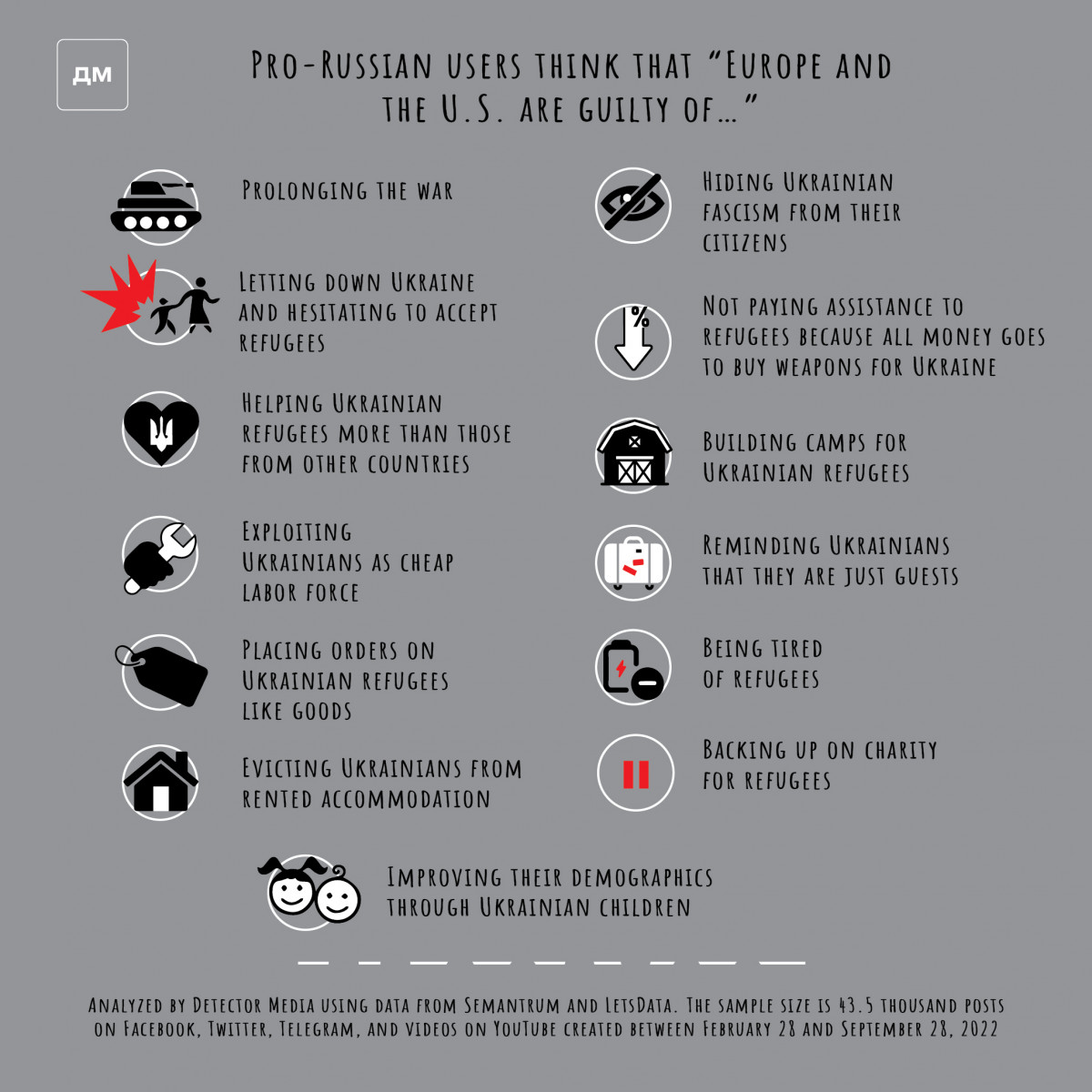
Conclusion
By manipulating information about the life of Ukrainian refugees abroad, and spreading fakes about them, Russian propaganda seeks to influence public opinion both about the refugees and about the situation in Ukraine. Russian disinformation about Ukrainian refugees, in particular, is based on differences in values. For example, propaganda calls Ukrainians Nazis (in the sense of radical xenophobes) or claims that Ukrainians are not ready to work to provide for themselves, but only live off European taxpayers’ money. Additionally, propagandists paint a negative picture of Ukrainian women who were forced to flee to the EU, claiming that they earn money via sex work or destroy families in Europe by seducing foreign men. In addition to this, Russian propaganda uses fakes and distortions of facts to portray Ukrainians as criminals who allegedly destroy Europe, bring its economy to collapse, etc. Alternatively, it claims that Ukrainian refugees are allegedly filthy rich, and they left Ukraine not because of the war and the threat to their lives, but for the sake of a luxurious life in the wealthy West. Using such disinformation, Russia also attempts to turn European society against Ukrainians, creating the impression that Ukrainians and Europeans are different, therefore refugees from Ukraine should not receive their assistance It also stirs up hostility between refugees from different countries, increasing social tension in Europe.
In other words, propaganda considers migration as a threat to Europeans, a threat to human health, the economy, etc. Refugees are portrayed as an invading force, which, in turn, also threatens Europe: refugees in disinformation narratives appear as people of a different culture who are not ready to accept the social and legal norms of European society.
This kind of disinformation is also dangerous as when people in the EU countries begin to feel the socio-economic effects of the war in Ukraine, for example, higher energy prices, it could also increase prejudice against refugees. To put it another way, lies about refugees are used to polarize society and promote divisions.
Russia systematically uses disinformation to promote its geopolitical goals. Research shows that the impact of Russian disinformation on European societies is quite high. In particular, a study by Princeton University (USA) “Trends in Online Foreign Influence Efforts” showed that Russia is a global leader in the use of disinformation on the Internet during influence campaigns. Russia is responsible for 62% of such interference in the internal affairs of other countries.
This study was carried out with the support of the Black Sea Trust for Regional Cooperation, German Marshall Fund of the United States. Opinions expressed in this publication do not necessarily represent those of the Black Sea Trust or its partners.”.
Visualizations and main photo: Nataliya Lobach


